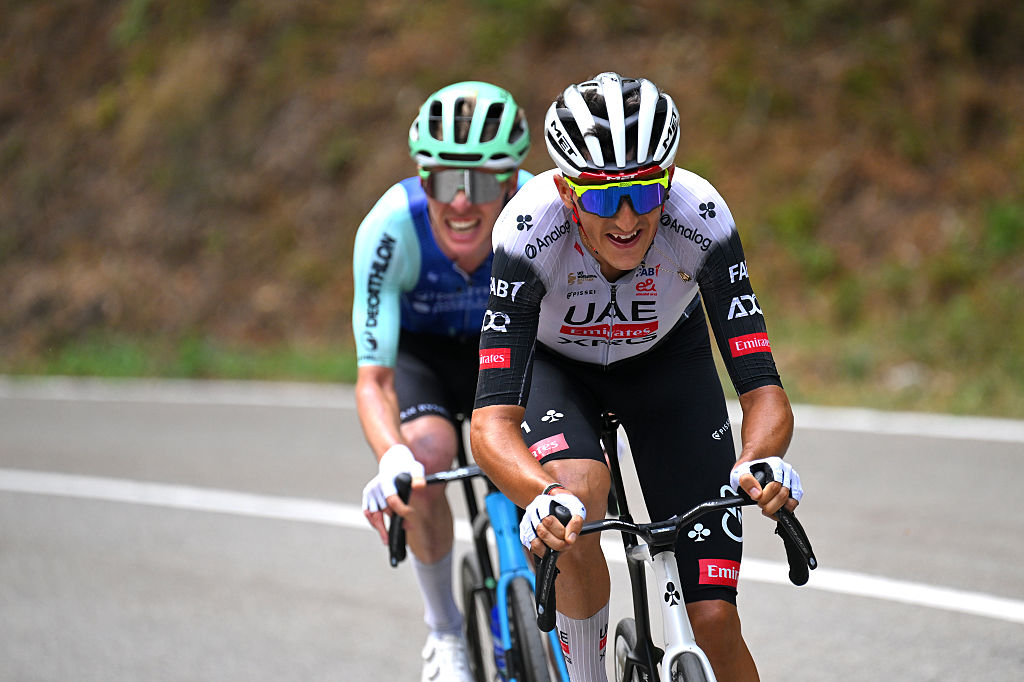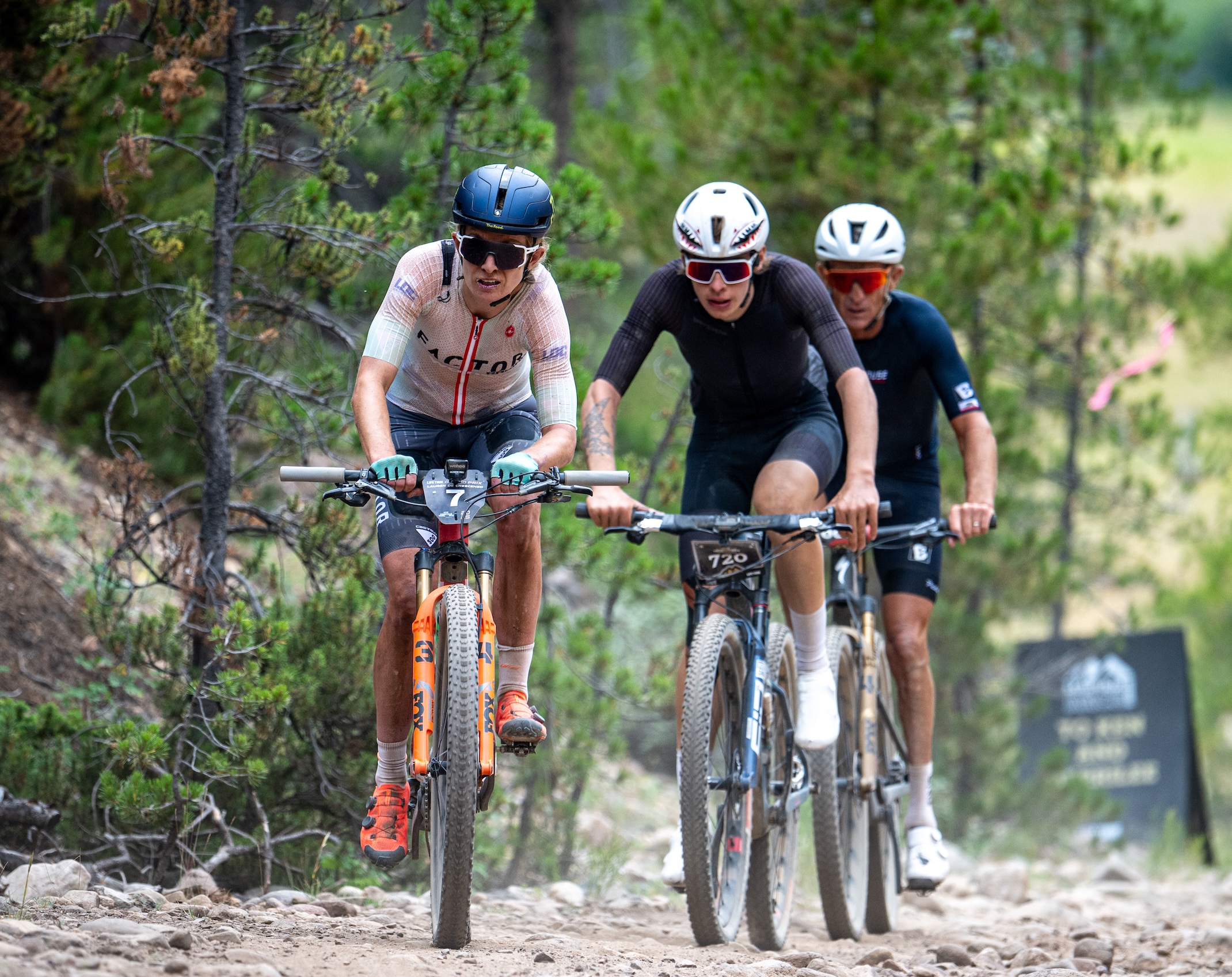'I didn't expect this' – Marc Soler adds yet another Vuelta a España stage win to UAE Emirates-XRG's already staggering total
Team have now taken seven wins of a possible 14 in the 2025 Vuelta with four different riders

The latest race content, interviews, features, reviews and expert buying guides, direct to your inbox!
You are now subscribed
Your newsletter sign-up was successful
By this point in the Vuelta a España and with seven stage wins out of a possible 14 so far, reporting that UAE Team Emirates-XRG have taken yet another victory to their palmarès barely feels newsworthy.
But in the case of Marc Soler's latest triumph for UAE at the summit finish of La Farrapona, it later emerged that neither rider nor team had planned for it to happen.
When Soler first made it into the break of the day and then moved away solo 16km from the line at La Farrapona, the expectation was that he would be waiting for team leader João Almeida to bridge across.
But instead, after UAE had shredded the peloton on the previous, ultra-hard Alto de San Llaurienzu ascent, and then put both Mikkel Bjerg and Felix Großschartner to work on the front of the main group, Almeida's attack never materialised.
Instead, Soler, having only made it into the break by accident, he later revealed, was able to continue to the line alone. In the process, he both gained sporting revenge on losing the same summit finish in 2020 to David Gaudu (Groupama-FDJ) – who finished more than 21 minutes down on Saturday – and also racked up 2025 Vuelta stage win number seven for UAE Team Emirates-XRG as a birthday present for his wife, Judit.
"I never expected it, and it wasn't my intention to be in the break," Soler said later. "But [Visma rider Victor] Campenaerts bridged across and so I followed him, and I could work it out to get the win."
"My initial idea was to work for Almeida, but the circumstances worked out otherwise. I did know, though, that if Almeida managed to break away, I'd have to stop and help him. But finally I could make it."
The latest race content, interviews, features, reviews and expert buying guides, direct to your inbox!
The fourth Vuelta stage win of Soler's career came in unexpected circumstances, but as Almeida himself confirmed at the summit, "we had nothing to lose by having him in the break. I wanted him up there in case I attacked because of the strong headwinds today, because maybe we were going to try for the win."
Almeida's attack never came, though, and instead, Soler was able to go for a victory on the same climb where he had been conclusively outduelled by Gaudu back in 2020 – but this time, being able to use his prior knowledge of La Farrapona to his advantage,
"I had to follow wheels, at first, but I knew from 2020 that in the valley there's a lot of wind and if you got any kind of advantage that the guys chasing behind would start arguing about who was going to work the hardest to catch me."
"Finally, I was taking it steady in case João attacked, but I always had enough of an advantage to get it.
"It's different from my three previous Vuelta wins because it's revenge for what happened last time here, and it's a really nice present for my wife, too."
As for whether he'd expected Almeida to be so close to Vingegaard overall – just 48 seconds separate the two – after Asturias, Soler said, "That's a difficult question to answer."
"I knew he'd be good, although he'd had that crash in the Tour, so it was hard to know how good. 48 seconds may not seem like a lot, but between two top riders like João and Jonas, it can be an important margin. So we'll have to see how the last week plays out, and hopefully he'll be able to get into red."
His next role after the Vuelta, he said, subject to the final confirmation of his participation by national trainer Alejandro Valverde, will be to work for Juan Ayuso in the World Championships, "just as it has been for Almeida here."
But if Soler gets his own chance to shine, to judge from how he raced on La Farrapona, for sure, he will take it.
Subscribe to Cyclingnews for unlimited access to our 2025 Vuelta a España coverage. Our team of journalists are on the ground from the Italian Gran Partida through to Madrid, bringing you breaking news, analysis, and more, from every stage of the Grand Tour as it happens. Find out more.
Alasdair Fotheringham has been reporting on cycling since 1991. He has covered every Tour de France since 1992 bar one, as well as numerous other bike races of all shapes and sizes, ranging from the Olympic Games in 2008 to the now sadly defunct Subida a Urkiola hill climb in Spain. As well as working for Cyclingnews, he has also written for The Independent, The Guardian, ProCycling, The Express and Reuters.
You must confirm your public display name before commenting
Please logout and then login again, you will then be prompted to enter your display name.

